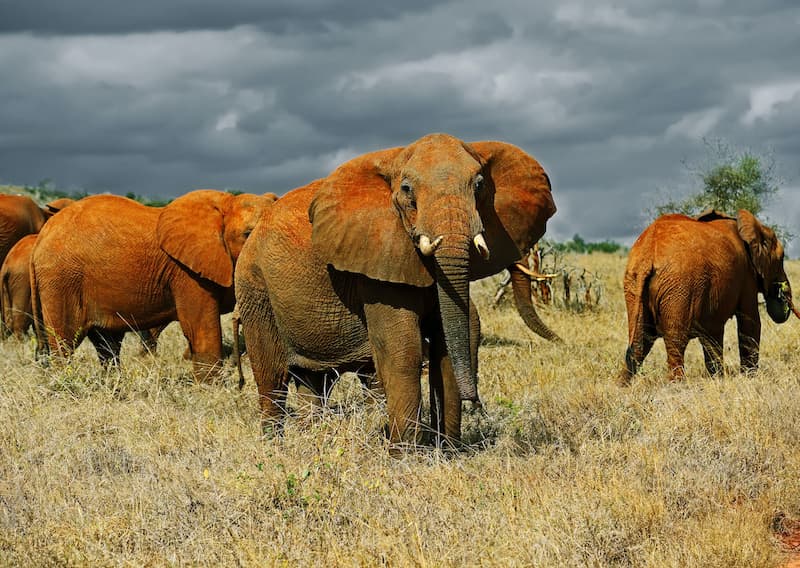
Planning a Trip to Africa Safari: Your Ultimate Guide
Planning a trip to Africa safari is an exhilarating experience that promises unmatched adventure and natural beauty.
The thought of encountering majestic wildlife, breathtaking landscapes, and vibrant cultures captivates many travelers around the globe.
However, to make this dream a reality, meticulous planning is essential.
This guide will cover everything you need to know, from choosing the right destination and time to pack essentials and cultural etiquette.
By the end of this article, you’ll be well-equipped to embark on your African safari journey and create memories of a lifetime.
Choose the Perfect Destination for Your Safari
When it comes to planning a trip to Africa safari, selecting the right destination is crucial.
Each country offers unique experiences and a diverse range of wildlife.
Consider popular destinations like Kenya and Tanzania in East Africa or South Africa and Botswana in Southern Africa.
These regions provide exciting safaris, each with distinct landscapes, wildlife, and cultural experiences.
For instance, the Maasai Mara in Kenya and Serengeti in Tanzania are renowned for the Great Migration, where millions of wildebeests and zebras cross the plains.
On the other hand, Botswana is known for its pristine conditions in Okavango Delta, teeming with elephants and hippos.
Thus, when planning your trip, ensure to research which region aligns best with your travel desires and animal sighting interests.
Timing Your Safari Adventure
The next consideration in planning a trip to Africa safari is selecting the right time to visit.
Different seasons offer varied wildlife viewing opportunities.
Generally, the dry season from June to October is most favorable for spotting animals, as wildlife gathers around water sources.
However, the green season from November to April has its benefits too, such as witnessing newborn animals and lush landscapes.
In certain areas, this is also the time for bird watching.
When planning your trip, consider what wildlife experiences interest you most, and time your visit accordingly.
Understanding Different Safari Types
With the right destination and timing, it is time to consider the various safari types.
Each safari offers a different way to experience the African wilderness.
Here are a few popular options:
- Game Drives: The most common safari type, conducted in open vehicles, allowing you to maximize wildlife sightings.
- Walking Safaris: These provide an up-close experience with nature and wildlife, guided by an expert.
- Boat Safaris: Exploring rivers and lakes gives a unique perspective of wildlife, offering a serene experience.
- Night Safaris: Guided night drives reveal nocturnal creatures and offer a completely different safari experience.
Understanding your preferences will help enhance your safari experience.
Accommodation Choices: Finding Your Home in the Wild
Accommodation plays a vital role in your Africa safari adventure.
When planning your trip, consider your comfort level and budget.
Options range from luxury lodges and tented camps to budget-friendly guesthouses.
Staying in luxury lodges can provide a high-end experience with top-notch amenities and gourmet meals.
On the contrary, tented camps offer a more immersive experience, bringing you closer to nature.
Each accommodation type provides unique experiences and perspectives on the African wilderness, so consider what resonates with you.
Hiring an Experienced Safari Guide
One often overlooked aspect of planning a trip to Africa safari is engaging with an experienced safari guide.
A knowledgeable guide can enhance your experience by sharing insights and ensuring your safety.
Guides provide context to wildlife sightings, helping you appreciate the behaviors and interactions of various species.
Moreover, they ensure that you respect wildlife guidelines and conduct safe practices during encounters.
By hiring a professional, you are not only ensuring your safety, but also enriching your overall safari experience.
Essential Packing Tips for Your Safari
Planning what to pack for your safari adventure is another key consideration.
Here are essential packing tips to ensure you’re well-prepared for the journey:
- **Light and Comfortable Clothing**
- **Neutral Colors**
- **Binoculars**
- **Hydration Supplies**
- **Insect Protection**
Pack light yet comfortable clothing ideal for warm days and cool nights.
Opt for neutral-colored clothing to blend into the environment while maximizing wildlife sightings.
Bring a good pair of binoculars for enhanced wildlife viewing experience.
Carry a refillable water bottle to stay hydrated while exploring the wild.
Bring insect repellent and long-sleeved clothing to avoid bites.
Understanding Local Cultures and Etiquette
As much as the wildlife is the centerpiece of your safari, paying attention to local cultures is equally important.
Understanding the customs and traditions of the local communities will enrich your experience.
Here are some etiquette tips to follow:
- Respect cultural practices by seeking permission before taking photographs of people or their belongings.
- Learn basic local phrases so that you can engage with community members during your visit.
- Dress appropriately, especially when visiting local villages or cultural sites.
Conservation Efforts: Traveling Responsibly
Traveling to Africa for a safari offers a wonderful opportunity to engage in conservation efforts.
Supporting eco-friendly lodges or conservation projects can make a positive impact on wildlife preservation.
Be conscious of your environmental footprint while on safari.
Here are some ways to contribute:
- Choose eco-friendly operators who engage in sustainable practices.
- Participate in local community projects that support conservation.
- Educate yourself and others about the importance of preserving wildlife and habitats.
Documenting Your Safari Experience
Capturing memories during your trip is an essential part of planning a trip to Africa safari.
Bringing a capable camera with extra batteries and storage is important for photographing those unforgettable moments.
Consider keeping a travel journal to reflect on your experiences and document wildlife sightings or personal encounters.
Lastly, sharing your experiences through social media or travel blogs can inspire future travelers and create shared memories.
Conclusion
Planning a trip to Africa safari is an awe-inspiring journey filled with opportunities for adventure, wildlife sightings, and cultural experiences.
From choosing the right destination and timing to understanding safari types and engaging with local communities, every aspect is essential to making your trip unforgettable.
By following this guide, you can ensure a deeper connection with nature and a profound appreciation for the African wilderness.
Happy travels as you embark on this incredible safari adventure!
FAQs
What should I consider when planning a safari?
Consider your budget, preferred wildlife experiences, and the best time to visit each specific destination.
What are the best months to go on a safari?
Generally, the dry months from June through October are ideal for wildlife viewing.
Do I need vaccinations before going on safari?
Yes, it is advisable to check vaccination requirements and malaria prophylaxis recommendations for your destination.
How do I choose the right safari operator?
Research operators thoroughly, looking at their experiences, safety measures, and eco-friendly credentials.
Can I self-drive during a safari?
In some countries, self-driving is allowed, but ensure you are familiar with local road conditions and wildlife regulations.
We invite you to share your thoughts, experiences, or questions about planning a trip to Africa safari in the comments section below!


